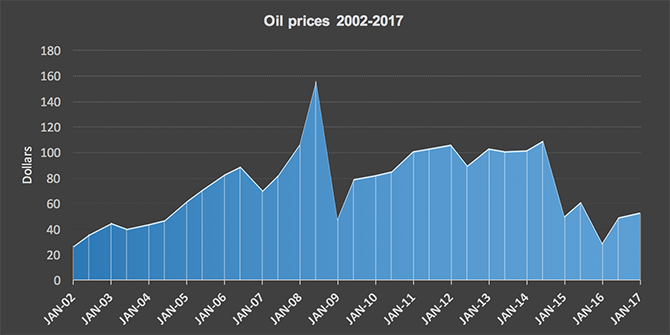
 How can local services be organised best to support people who have complex, overlapping needs? What are the implications for practice and governance when these needs crossover existing organisational boundaries? Michael Clark and Michelle Cornes examine these issues from the perspective of supporting people experiencing homelessness combined with other complex needs. They argue that the idea of ‘communities of practice’ can help humanise the system.
How can local services be organised best to support people who have complex, overlapping needs? What are the implications for practice and governance when these needs crossover existing organisational boundaries? Michael Clark and Michelle Cornes examine these issues from the perspective of supporting people experiencing homelessness combined with other complex needs. They argue that the idea of ‘communities of practice’ can help humanise the system.
Multiple-exclusion homelessness
Multiple-exclusion homelessness (MEH) is a term used to describe the experiences of people who are simultaneously homeless and facing other issues such as substance abuse or mental health problems and, as a consequence, face social exclusion. Each person experiencing MEH faces very particular difficulties to him or her, usually with complex interactions between, for example, severe mental health problems, managing money and keeping accommodation. MEH is a good example of what in social policy is often termed a “wicked issue”, i.e. one that is a set of complex, interacting problems and experiences that are individually long-running and difficult to resolve, but even more so given their entwined nature. Indeed, speedy or even complete resolution may not be possible and incremental improvements may be the most that can be hoped for with such issues.
However, people experiencing MEH often find themselves receiving responses from services focused on a narrow aspect of their needs, and which in reality are insufficient to address their complex needs. Generally people experience sequential handovers between frontline staff and their organisations, rather than a more integrated set of responses aimed at simultaneously and holistically trying to help with, to continue the example, mental health, money and housing issues. Placing someone in accommodation but leaving a lag before support is there for managing money and/or mental health difficulties can ultimately endanger his or her tenancy.
Organisational governance and MEH
Much has been written in policy and other contexts about this issue of MEH and the need for more integrated support. However, there remains a gap in practice. The reasons for this are themselves complex, but one aspect is the challenge of operating across different organisations and their individual governance arrangements. Overlaying this, we argue, is the dominance of managerial practices in this area driven by New Public Management ideas. This includes a belief in managerial hierarchies within organisations as a means of controlling work, and the use of such things as targets to regulate the work of organisations and practitioners. In combination, managerial practices reduce complex issues to simplistic statements giving the impression of easily managed, or ‘tame’ issues.
Also, these managerial practices hinder practitioners working with people experiencing MEH from developing authentic relationships with their clients and with fellow practitioners working with the same clients but within other organisations. The risk is that despite the need for coordinated action at specific times, work and relationships are driven by the governance and contracting arrangements, and associated targets, which hamper such coordination.
Re-humanising the system
As the success of support depends on relationships between people, there is a need to nurture these and make sure they are not stifled under the grip of organisational governance and managerial control. Finding means of building more authentic relationships between staff is crucial to building the trust and better communication needed for timely, coordinated delivery of support for complex needs.
In one project we explored the use of Communities of Practice (COP) as a vehicle for allowing local practitioners to come together to more freely learn together, get to know each other, and to begin to explore different ways of working together with an individual client experiencing MEH. We found the COP to be a useful method of achieving this, and one appreciated by local participants. There were also examples of them making modest changes in practice with regard to some clients – little miracles of improvement. Also, they could begin to explore emergent responses to the situations and needs of a client, rather than ones prescribed by contracts.
Local organisational governance still presented difficulties to improving coordinated care, however. Practitioners in the COP groups became more familiar with and trusting of each other, and sympathetic to the needs of clients and colleagues, but often they still felt stifled by management and contractual arrangements and targets.
Providing practitioners with the means to realistically address complex patterns of needs presents a challenge to the way many services are organised in terms of organisational governance, including contractual requirements and targets and managerial control. Although in our research a COP cannot completely escape from these restrictions, members of it could identify some improvements in support to individuals. With greater effort in localities, members of a COP could be enabled to work even more creatively and emergently to deliver the coordinated and responsive support needed by those experiencing MEH.
__
Note: This article draws from research published in the Journal of Integrated Care, written with colleagues Jill Manthorpe , Catherine Hennessy , and Sarah Anderson. The article represents the views of the authors and not those of the British Politics and Policy blog nor the LSE. Please read our comments policy before posting.
__
 Michael Clark, Professorial Research Fellow, Personal Social Services Research Unit, London School of Economics & Political Science
Michael Clark, Professorial Research Fellow, Personal Social Services Research Unit, London School of Economics & Political Science
 Michelle Cornes, Senior Research Fellow, Social Care Workforce Research Unit, King’s College London
Michelle Cornes, Senior Research Fellow, Social Care Workforce Research Unit, King’s College London
(Featured image credit: duncan c CC BY-NC 2.0)







